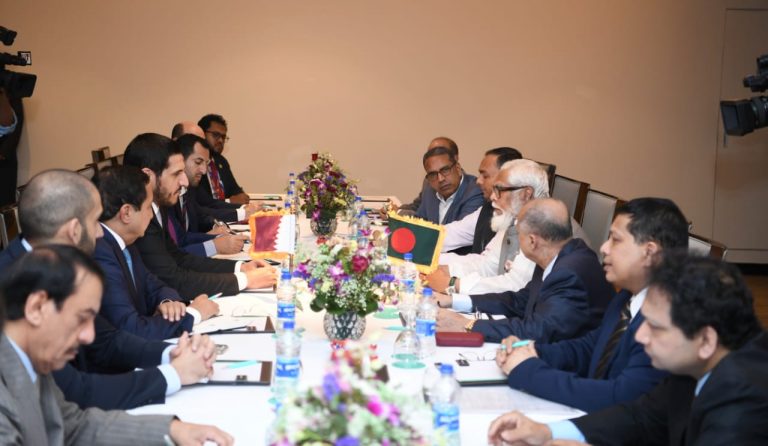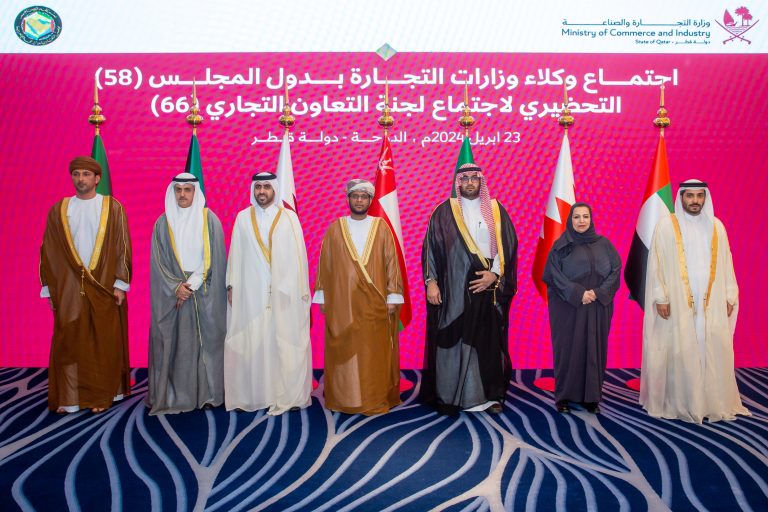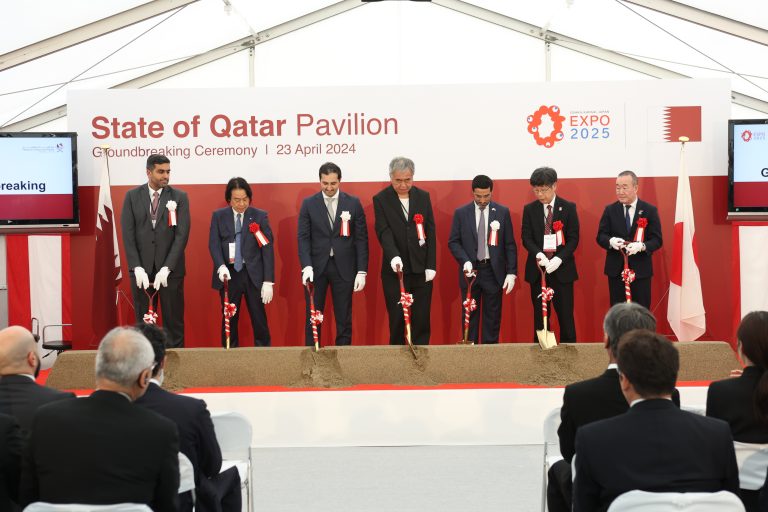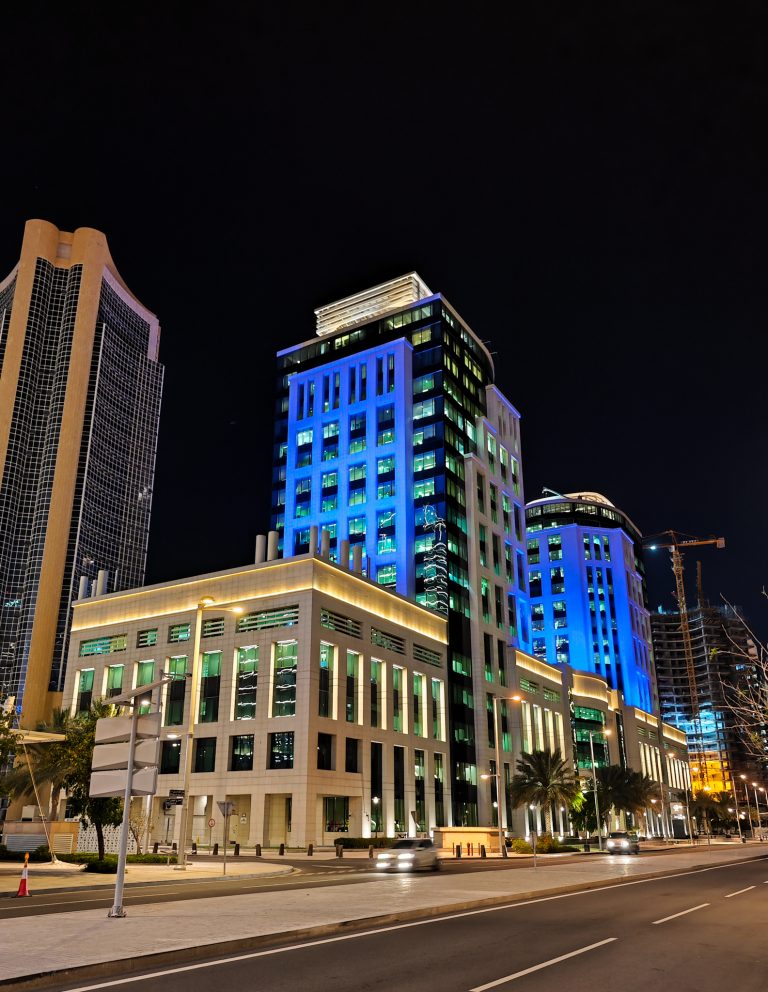According to the latest Global Competitiveness Index, Qatar ranked first in terms of its safe business environment and second in terms of the impact of taxes on businessQatar ranks third in terms of the state’s procurement of advanced technology products and fifth in terms of the availability of investment capital, scientists and engineers.Foreign trade increased by 16% in 2017, reaching US$103 billion dollars compared with US$89 billion in 2016.Qatar’s exports increased by 19% in 2017 compared to 2016H.E. Minister of Economy and Commerce: “Investors can choose between operating their projects in free zones or investing directly in Qatar’s local markets “Qatar is currently developing two free zones spanning 35 million square metres, which will position Qatar as an ideal destination for foreign direct investment.The State has established four new logistics zones that have contributed to reducing the cost of warehousing and supply chains Foreign companies looking to expand their businesses in Qatar can benefit from an advanced business environmentThe government is currently working on issuing a new public private partnership law that will coincide with the launch of a number of investment projects.A law regulating the investment of non-Qatari capital in economic activity significantly eases the registration of companies in Qatar and opens the door for investments across all sectorsInvesting in Qatar is now easier through the Invest in Qatar Center, which aims to help new foreign companies establish their businesses and complete procedures.The State’s commitment to maintaining government spending on infrastructure projects have contributed to the development of advanced economic facilities designed in line with the highest international standards.Minister of Economy and Commerce: “Hamad International Airport is one of the largest regional airports, accommodating more than 30 million passengers a year, and providing services through Qatar Airways, the world’s best airline, flying to more than 150 destinations worldwide.H.E. says Hamad port is one of the largest ports in the Middle East, accounting for 27% of regional trade in the Middle East with a capacity of 7.5 million cargo containers annually. Hamad Port plays an important role in linking Qatar to the world’s largest economies through new and direct commercial lines that have strengthened the country’s position as a hub for trade across the Middle East and the world On the sidelines of the forum, two workshops were organized on investment opportunities in Doha and the promotion of joint cooperation
Within the framework of the official visit of His Highness the Emir Sheikh Tamim bin Hamad Al Thani to Bulgaria, His Excellency Sheikh Ahmed bin Jassim bin Mohammed Al Thani, Minister of Economy and Commerce, and His Bulgarian counterpart HE Mr. Emil Karanikolov inaugurated on Tuesday, March 8, 2018, the Bulgaria-Qatar Economic Forum, organized by the Ministry in cooperation with the Bulgarian Agency for the Promotion of Small and Medium Enterprises.
The forum brought together H.E. Sheikh Khalifa Bin Jassim Bin Mohammed Al Thani, Chairman of Qatar Chamber; Mr. Tsvetan Simeonov, President of Bulgarian Chamber of Commerce and Industry; Mrs. Gabriela Kozareva, Executive Director of the Bulgarian Agency for the Promotion of Small and Medium Enterprises; and Mr. Stamen Yanev, Executive Director of the Bulgarian Investment Agency, along with more than 300 businessmen, investors and government officials from both countries. The forum was also attended by chief executives of major Qatari companies in the fields of trade and industry, oil and gas, investment, food, contracting, medical equipment, health, medicines, automobiles, agriculture, engineering, building materials, e-commerce, and other sectors, who discussed investment opportunities and potential joint ventures.
The forum aims at enhancing Qatari–Bulgarian economic, trade and investment cooperation, and opening up new prospects for cooperation between representatives of the private sector in both countries in a bid to launch investment projects that serve the interests of both Qatar and Bulgaria.
In his opening speech, Qatar’s Minister of Economy and Commerce highlighted friendly Qatari–Bulgarian relations that date back to the 1990s, reflecting both countries’ keenness on promoting cooperation across all fields.
H.E. stressed the important role that bilateral agreements and Memoranda of understanding in the economic, trade, investment and technical collaboration fields played in enhancing bilateral trade, which reached 24 million UD dollars in 2017.
Sheikh Ahmed said Qatar looked forward to working together with Bulgaria to bolster their partnership in trade and investment areas, according to a clear framework that serves both countries’ economic aspirations, and contributes to establishing new and innovative areas of collaboration.
Touching on the resiliency of Qatar’s economy, H.E. noted that Qatar, under the leadership of His Highness the Emir Sheikh Tamim bin Hamad Al-Thani, Qatar has emerged stronger and more economically independent than ever before despite the global economic uncertainties and regional challenges, epitomized by the illegal blockade on Qatar that began on June 5th, 2017, a blockade aimed at undermining Qatar’s position as an economically independent and sovereign state.
In fact, the illegal blockade has presented an opportunity for Qatar to make its economy more accessible to the world, Sheikh Ahmed said.
H.E. stressed that the Qatari economy has continued its stable performance, enhancing its competitiveness and overcoming all obstacles thanks to the systematic policies established by the wise leadership, which serve to stimulate all economic sectors to increase their productivity.
H.E. highlighted that Qatar’s total GDP increased to reach US$ 220 billion in 2017, compared with US$218 billion in 2016, and the annual real growth rate of GDP reached 2% in 2017. This provides a clear demonstration that the blockade had no impact on Qatar’s economy, but rather bolstered its determination to achieve sustainable economic growth and stability.
The minister noted that Qatar has managed to overcome various regional and global challenges by implementing a strategy aimed at diversifying its revenue sources and positioning the private sector as an active partner in the accomplishment of the Qatar National Vision 2030.
The minister said the share of the non-oil and gas sector in the nation’s GDP at constant prices was 52% in 2017, while foreign trade increased by 16%, reaching US$ 103 billion, compared with US$89 billion in 2016.
Total exports, on the other hand, grew by 19% to US$68 billion US dollars in 2017, compared with US$57 billion in 2016, the minister said.
As a result, trade surplus increased by 40% in 2017, reaching US$35 billion dollars, compared with US$25 billion in 2016, which reflected positively on Qatar’s ranking on several international indicators, the minister added.
According to the World Bank, Qatar’s real GDP growth is expected to increase by another 2.6% in 2018, in line with the government’s efforts to bolster foreign investment, Sheikh Ahmed added.
H.E. highlighted Qatar’s global advanced rankings in the latest Global Competitiveness Index, noting that the country ranks first in terms of safe business environment, second in terms of the impact of taxes on business, third in terms of the state’s procurement of advanced technology products, and fifth in terms of the availability of investment capital, scientists and engineers.
Commenting on investment incentives offered by Qatar, H.E. expressed his full conviction that Qatar’s successful economic policies and balanced growth rates across all sectors have greatly contributed to enhancing investor confidence in the national economy.
“Qatar is today one of the most investment-friendly countries in the region thanks to its balanced policies and economic decisions, as well as its strategic position, which allows the country to become a trade hub for countries across the region and worldwide,” the minister said.
He added that foreign companies looking to expand their business in Qatar can benefit from an advanced business environment. In this context, Sheikh Ahmed said the government has allowed foreign investors up to 100% ownership in many sectors, and is exempting invested foreign capital from income tax for up to 10 years for specific investment projects. In addition, Qatar is offering exemptions from customs taxes and duties when importing equipment and raw materials, the minister said, noting that investors are free to repatriate their profits and transfer the ownership of companies.
H.E. explained that investors can choose between operating their investment projects in free zones or directly accessing local markets, noting that Qatar is currently developing two free zones spanning 35 million square metres. This will position Qatar as an ideal destination for foreign direct investment, the minister said, adding that the State has established four new logistics areas that have contributed to reducing the cost of warehousing and bolstering the supply chain.
Touching on Qatar’s legislative environment, H.E. said that the government is currently working on issuing a new public private partnership law that will coincide with the launch of a number of investment projects. H.E. added that a law regulating the investment of non-Qatari capital in economic activity was recently issued, which significantly eases the registration of companies and opens the door for investments across all sectors.
H.E. also noted that investing in Qatar is now much easier compared to other regional countries through the Invest in Qatar Center, which aims to help investors establish their projects and streamlines business procedures.
Sheikh Ahmed also highlighted the state-of-the-art infrastructure provided to investors, praising the state’s efforts to enhance government spending on infrastructure projects to develop economic facilities in line with the highest international standards.
In this context, H.E. highlighted Hamad International Airport’s role as one of the biggest airports in the region, with passenger capacity of more than 30 million per year and connecting Qatar to more than 150 destinations around the world through Qatar Airways, which has been selected as the world’s best airline.
The new Hamad Port, which is located south of Doha, also reflects Qatar’s efforts to accelerate its development projects, the minister said.
“This port is one of the largest in the Middle East, accounting for 27% of regional trade, and can accommodate up to 7.5 million cargo containers annually. The port links Qatar with major economies around the world through direct commercial lines that have bolstered Qatar’s position as a hub for trade across the Middle East and the world,” the minister said.
The minister wrapped up his speech by inviting Bulgarian and European companies to invest in Qatar and contribute to both countries’ efforts to achieve their economic objectives.
In a presentation by Mr. Stamen Yanev, Executive Director of the Bulgarian Investment Agency, Bulgarian participants outlined the characteristics of the country’s business environment and industrial zones, while elaborating on investment and business opportunities as well as tourist sites.
The Qatari delegation also organized a workshop on potential joint ventures, and investment opportunities in the tourism and transport sectors, as well as challenges. The workshop brought together Mr. Salem Al-Kubaisi, Chief Corporate Services Officer at Katara Hospitality, and Mr. Ibrahim Al-Mannai, Executive Director for Consultant Services at Qatar Development Bank.
In a second workshop, the participating Qatari delegation also shed light on the transport sector, FIFA World Cup 2022-related projects and cooperation opportunities in food security.
The session was attended by Mr. Fahad Rashid al Kaabi, CEO of Manateq Company; Eng. Youssif Al-Musleh, Competition Venues Executive Director at Supreme Committee for Delivery & Legacy; Mr. Abdulrahman al-Khayarin, CEO of Widam Food Company; and Mr. Salah Al Hammadi, DCEO of Al Meera Consumer Goods Company .
The forum also witnessed bilateral meetings between Qatari and Bulgarian businessmen, who reviewed investment opportunities available in both countries and discussed long-term economic cooperation mechanisms between Qatari and Bulgarian companies.








